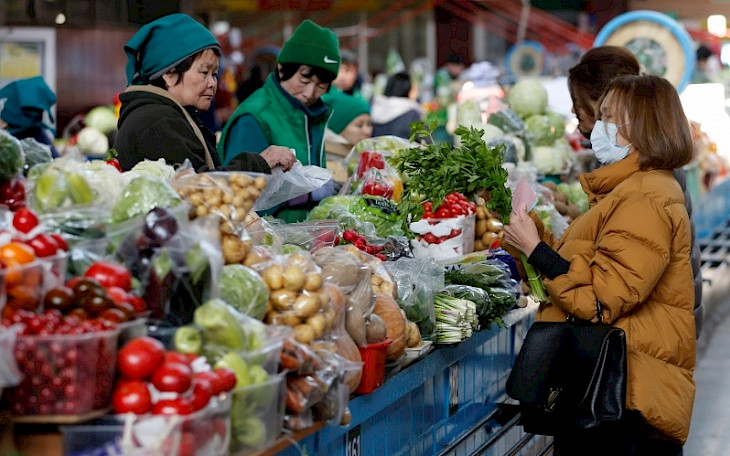The Government of Kazakhstan has discussed issues related to pricing of essential food products and the process of forming reserves for the upcoming calendar year.
The meeting was chaired by the Deputy Prime Minister and Minister of Trade and Integration, Serik Zhumangarin, Ritmeurasia.org reports.
The Trade Committee of the Ministry of Trade and Integration of Kazakhstan presented the results of the analysis of concluded contracts with agricultural producers. During this process, they determined the average purchase prices and identified those who engaged in this work without due responsibility.
"We analyzed 134 contracts and identified average purchase prices across the country: potatoes - 113 tenge, carrots - 108 tenge, onions - 107 tenge, cabbage - 97 tenge," informed Aidar Abildabekov, Chairman of the Trade Committee. The analysis showed that over the past week, the price increase for essential food products remained at an average of zero.
However, there were also identified shortcomings. The analysis conducted by Kazakhstan's main trade authority revealed that when entering into contracts to provide loans to agricultural producers, often there was poor documentation of initial data, which hindered deep analysis and pricing prediction. Specifically, details like volume (in tons), prices per product category, purchase and retail prices, total amount, interest rate, price stabilization period, loan repayment and product delivery schedules, retail sales locations, and more, were often not specified. Additionally, many contracts contained confidentiality clauses that contradicted Kazakhstan's legislation.
"What kind of confidentiality can there be in contracts with agricultural producers?" Zhumangarin responded to the report. "These are budgetary funds. I instruct the Ministry of Agriculture to take control and revise all contracts. If necessary, develop a unified standard contract that specifies a fixed price, product name, and quantity. By the end of the month, all regions must contract for 30% of the 3-month volume. I would like to remind once again that price stabilization in the domestic market, which affects food inflation, will only come from the necessary volume of reserves."
CentralasianLIGHT.org
August 15, 2023

